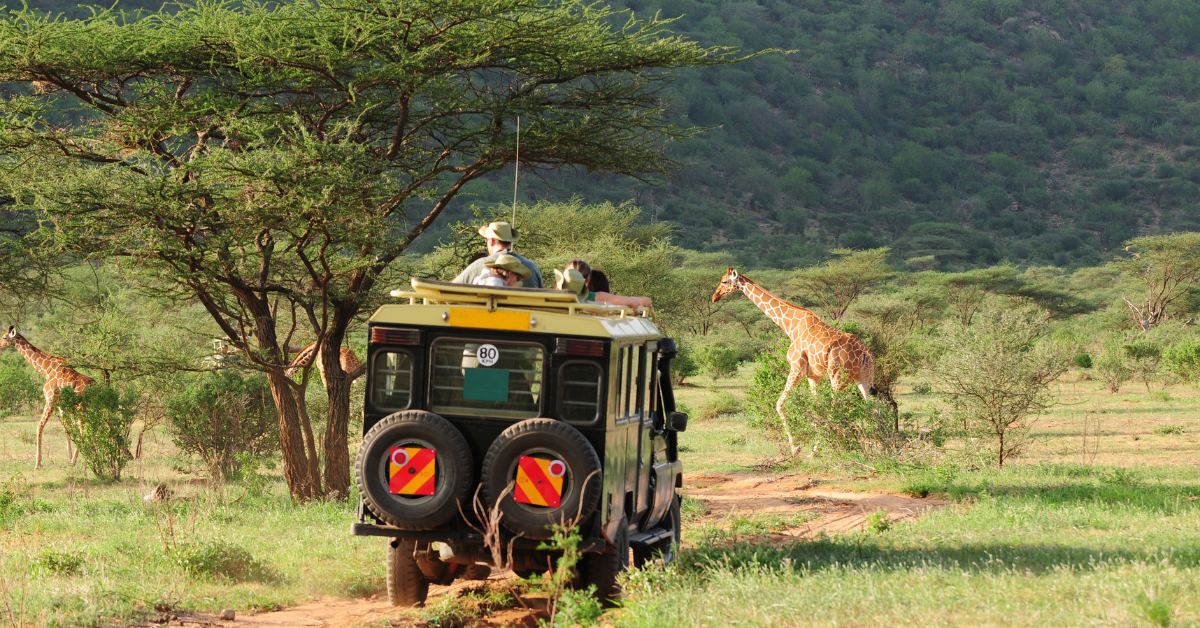
Rethinking Tourism
27 Sep 2022
Written by Mr Louis Strauss
World Tourism Day is dedicated to promoting tourism in various regions of the world. The United Nations World Trade Organization (UNWTO) established the day, which has been observed every year on September 27, since 1980. It commemorates the approval of UNWTO Statues on September 27, 1970. Tourism not only provides us with time to rest and enjoy ourselves, but it also exposes us to new cultures. On this day, tourist boards from various countries present appealing solutions to encourage tourism in their towns and states. 'Rethinking Tourism' is the subject of World Tourism Day in 2022 which brings us to forms of tourism which contribute to inclusive, diversified, and flourishing wildlife economies which are able to transform, enhance, and maintain African landscapes.
Eco-tourism is the use of wilderness areas that might otherwise be destroyed by agricultural, mining, and cattle production, and is therefore both an expansion and a refining of the tourism-conservation relationship. It expands on the concept of utilising tourism to support conservation and vice versa, while also extending the sustainability requirements. Early planners regarded it as a type of tourism that could and should be created and managed proactively with a focus for directing income to conservation and community development when it began in the late 1980s, at the dawn of sustainable development.
Eco-tourism was intended to take place in protected areas, but also to expand outside these areas to improve the livelihoods of people in local communities, and to conserve not only leisure possibilities or scenery, but also to address more current concerns such as biodiversity conservation and ecological integrity. For example, the Nkomazi Municipality region in the southern Kruger National Park has around 35% unemployment, 38% of the population is under the age of 15, and a matric (high school) pass rate of 29.6%. Local communities have been given the opportunity to invest in eco-tourism establishments through the establishment of land claims, which is an added benefit for the communities surrounding the conservation areas, with dividends being paid out to the communities to uplift their livelihoods.
Without eco-tourism, which generates jobs, the unemployment rate would skyrocket, and the next generation of South Africans will be unaware of the importance of wilderness regions. However, the COVID-19 pandemic presented a problem to many eco-tourism companies, as lodges, hotels, and reserves had to go into survival mode to survive the epidemic, laying off employees and cutting back on purchases that would normally have benefited the local people.
Unemployment increases snare, fish, and wood poaching, as well as rhino poaching.
Simply put, tourism means both employment and conservation benefits.
Tourism enterprises may provide the following benefits to communities:
- Skill development
- Youth advancement
- Social and economic advantages
- On-the-job training
- Selling items such as crafts, veggies, and wood
- Small businesses such as vehicle maintenance, thatching, carpentry, biscuit and bread manufacturing, soap production, and staff and tourist transportation
Eco-tourism additionally supports conservation efforts such as anti-poaching and research on endangered species and thus contributes to net conservation advantages. This is accomplished by creating private conservation reserves, restoring habitat, or mitigating habitat destruction.
Let’s rethink eco-tourism as a key sector of more diversified wildlife economy that supports conservation and livelihoods in the best of times as well as challenging times like the recent pandemic. Happy World Tourism Day!
Louis Strauss, Director of Jock Safari Lodge
We support the free flow of information. Please share:
More content
-

What Foot and Mouth Disease-free means for South Africa’s game meat trade
Ms Lydia Daring Bhebe…Explore the latest developments in South African provinces achieving and maintaining Foot and Mouth Disease (FMD) free status…
Articles -

The world wildlife trade regulator is 50 – here’s what has worked and what needs to change
Daniel Challender…Most countries implement Cites, the Convention on International Trade in Endangered Species of Wild Fauna and Flora as…Articles -

Enabling Sustainable Wildlife Trade
Prof Francis VorhiesEnabling sustainable wildlife trade is a key policy measure for growing Africa's wildlife economy. In this respect, CITES…
Articles -

Has CITES become too complicated to be effective?
Prof Francis VorhiesGovernments agreed to the text of CITES in the 1970s, which is quite straightforward. However, the agreement’s implementation…
Articles -

From poachers to providers: Can Africa's wild meat market save wildlife?
Dr Wiseman NdlovuHave you ever considered how wild meat could be more than just a cultural staple but also a…
Articles -

As a fellow of the African Wildlife Economy Institute (AWEI), I am excited to attend the upcoming 3rd…
Articles -

A theory of change to improve conservation outcomes through CITES
Dr Michael 't Sas-Rolfes…Here we articulate the implied theory of change (ToC) underpinning the design and operation of CITES (Convention on...
2025Research -

Wild Meat Value Chain Integration Systems: Opportunities for Value Chain Formalisation and Scaling in Africa
Dr Wiseman Ndlovu…Establishing a legal, safe and sustainable wild meat sector promises to potentially reduce demand for illegally sourced meat...
2025Research -

AWEI's 2024 Wildlife Economy Dialogue Series
Ms Emily TaylorRediscover 2024: A year of insight and inspiration
In 2024, AWEI proudly hosted three ground-breaking dialogue series in…
Articles
Get updates by email
Through impactful research, stakeholder engagement, and professional development, AWEI is supporting the wildlife economy across Africa. Please subscribe for occasional updates on our work and forthcoming events.
Sign up for a quarterly dose of AWEI insights
In a complex and changing world, AWEI generates strategic ideas, conducts independent analysis on wildlife economies, and collaborates with global scholar-practitioners to provide training and expertise for biodiversity conservation, climate resilience, and inclusive economic opportunities in Africa.
